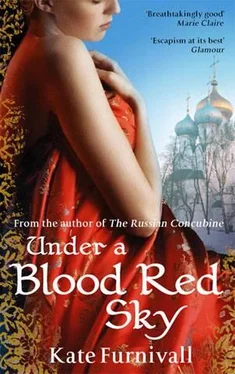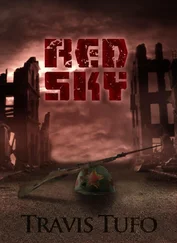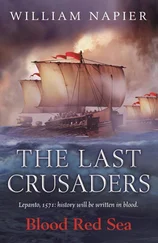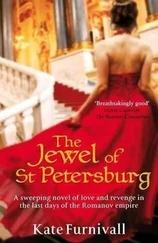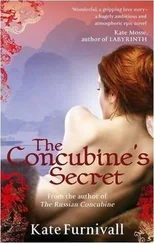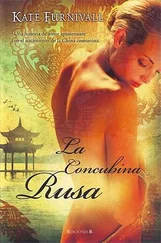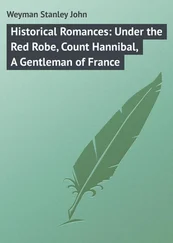He stepped back and dropped on one knee next to Grigori. His eyes glanced over at Anna. Almost imperceptibly he shook his head. He touched first Grigori’s wrist, then Svetlana’s, his head bowed. Anna saw his lips move soundlessly and a deep shudder gripped him. She felt it ripple in an echo through herself.
‘The boy killed my comrade here,’ the soldier growled.
Papa looked up. Slowly rose to his feet. ‘What boy?’
‘The Dyuzheyev son.’
Papa stood very still. ‘Where is he?’
‘My men are searching for him now.’
Papa looked at Anna but said nothing.
‘I am taking over this house,’ the soldier suddenly declared. ‘I requisition it in the name of the Soviet people and-’ He stopped abruptly and pointed at the black Oakland parked further along the drive, its headlamps sparkling in the sunshine. ‘Whose is that vehicle?’
‘It’s mine,’ Papa said. ‘I’m a doctor. I need a car to visit the sick.’
‘The rich sick,’ the boy soldier spat. ‘The sick that possess big houses and big bank balances.’ He pointed his rifle at the Oakland and fired. The windscreen exploded and glass flew like ice.
The older soldier scowled. ‘Why ruin a perfectly good car? We could use it for-’
‘It is American. It stinks of injustice just like this doctor does.’
‘Tell me, Doktor ,’ the older man in command demanded sharply, ‘do you also live in a big house? Do you also keep servants? Do you own horses and carriages and more silver samovars and fur coats than you can ever use?’ The man took a step closer. ‘Do you?’
Anna saw Papa’s eyes go to the silent bodies of Svetlana and Grigori. Suddenly he yanked the handsome silver watch from his waistcoat pocket. ‘Here,’ he shouted, ‘take this. And these.’ He hurled his cigar case and his beaver hat on to the trampled snow at their feet. ‘And take my house too, why don’t you?’ His heavy bunch of keys hit the boy’s toecap. Papa’s rage frightened Anna. ‘Take everything. Leave me nothing, not even my friends. Will I then be fit to doctor your glorious proletariat? And are you fit to decide who is fit to be cared for and who isn’t?’
The boy’s eyes filled with loathing.
Anna watched Papa take four long strides towards her. Odeen. Dva. Tri. Chetiri . One. Two. Three. Four. Her heart leapt at the sight of his familiar reassuring smile, at his eager blue eyes, his hair ruffled by the wind. The cloak that so many times had wrapped her close against his warm cigar-smelling body swirled in welcome, as though seeking her out. His hand reached for her and she felt Maria’s fingers uncurl.
There was a loud crack. Anna knew now that it was the sound a rifle makes when it’s fired. The boy, she thought, shooting at the car again. She expected Papa to be angry with him, but instead his mouth jerked open into a silent ‘oh’ and his eyes rolled up in his head, so that only their whites showed. His knees went soft. And then he was falling, face first like he used to do in the enticing waters of the Black Sea to amuse her when they spent the summer at their dacha . Face first into the snow. The back of his head was blown open. The boy soldier was gripping his rifle proudly.
Anna ripped herself free of her governess and started to scream.
Tivil July 1933
Zenia dealt the tarot cards, the gadalniye karti. Her hands were quick and skilful. Each card laid neatly on the table, flicking a second and a third to overlap it. The images of noose and naked bodies and long curved sickle tumbled on top of each other. The room was gloomy, shutters closed, the air scented with a cloying ball of goose fat that hissed and spat in a dish of beaten copper. In the centre of the table sat a basket of woven birch bark, a lid of coarse netting stretched over it, a knife positioned in a vertical line across its surface. The blade pointed due east. Inside the basket something moved.
The shadows shifted and Rafik’s voice was deep with tension as he placed a hand on the knife and said, ‘Again, Zenia.’
The gypsy girl gathered the cards. Shuffled and dealt again. The same. Noose and sickle and pink-skinned naked bodies entwined in long curling loops of silvery hair.
‘The lovers,’ Zenia announced. ‘They bring death to Tivil.’
An intake of breath as a shutter vibrated, though there was no wind. Rafik picked up a teacup that stood on the table, the one Sofia had drunk from earlier in the day with Pokrovsky. At the bottom of it tea leaves were bunched and spread into intricate shapes that Zenia had studied.
‘Are you sure?’ he asked, though in his heart he didn’t doubt his daughter’s reading.
‘Yes, I’m sure.’
‘A journey for her. One that brings sorrow to Tivil.’
‘Yes.’
They both gazed at the brown envelope that lay next to the basket. On it was written one word: Sofia. Rafik felt the weight of each of the bold black letters.
‘Tonight,’ he said. ‘I will walk the circle.’
The field was emptying. Sofia stood, straightening her cramped muscles, and watched the women head back towards the village in twos and threes, their chatter adding to the tinkling bell of the cows as they ambled in for the night.
‘That’s it for today,’ the woman tending the next potato row called across to her. ‘Come on, you can finish now. Enough for today.’
Sofia shouldered her hoe. ‘So Chairman Fomenko does allow us to stop work eventually, then?’
The woman chuckled and together they trudged up the valley, talking quietly about the condition of the crop this year, while the evening sun sent their long shadows skimming ahead of them. It was as they approached the cedar tree that Sofia spotted the huddle of three children crouched in the dust at the base of its wide trunk, playing a game of some kind with small stones and a rubber ball. A pair of bright brown eyes met hers and looked away quickly. It was Pyotr. Sofia felt an unexpected tug at her heart at the realisation that he was nervous of her.
She waved to him and smiled to coax him into friendship, but part of her felt like going over there and giving the boy a good shake. She didn’t, of course. She was just as nervous of him, that’s what was so stupid. They were uncomfortable together, too well aware of each other’s weakness. He knew she was a fugitive, and she knew he hadn’t reported her. Not yet, anyway.
‘Hello.’
Sofia blinked. A skinny little form had detached itself from the group and skipped over to her. Sofia halted, and her companion from the field nodded pleasantly and walked on. She had her husband’s meal to cook. It took Sofia a moment to recognise the narrow face and uncombed hair at her side. It belonged to one of the girls from inside the schoolroom last night, one of the silent little mice.
‘It’s me, Anastasia.’
‘Hello, Anastasia.’
‘My mother said to thank you.’
‘For what?’
Anastasia glanced furtively around with exaggerated care, though no one except the two boys was within earshot. ‘For the story.’
‘It was my pleasure.’
The girl grinned up at her, little mouse teeth showing. ‘We asked our teacher if you can come in again. Will you?’
Well, that explained the Pokrovsky visit. And why a number of the women in the potato field this afternoon had gone out of their way to include her in their banter.
‘ Da ,’ Sofia smiled. ‘Yes, I’ll come in again. If I’m officially invited.’
‘Did you hear that, Pyotr? Comrade Morozova might be coming into our school!’
Pyotr looked up from his position in the dirt. His gaze darted to Sofia’s face.
‘But you’re a tractor driver.’
‘Yes.’ She could see the uncertainty disturbing his young eyes and knew he was trying to deal with questions he couldn’t answer. Would it be so bad to have a fugitive in his school? Should he report it? What would happen if he did? Or if he didn’t?
Читать дальше
